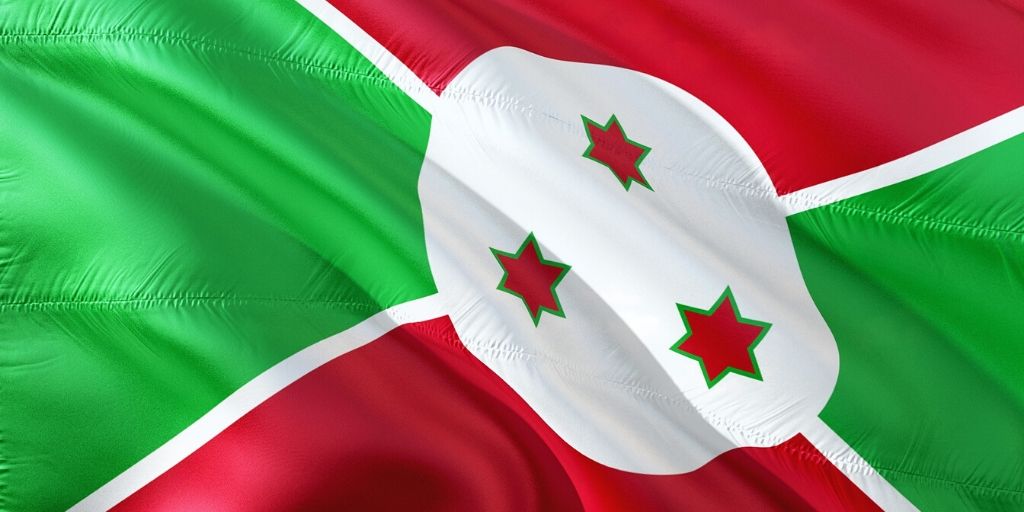
In May, Burundi held its first competitive presidential election since the country’s 1993 civil war, prompting hopes for a more democratic future. The ruling National Council for the Defense of Democracy – Forces for the Defense of Democracy (CNDD-FDD) candidate Evariste Ndayishimiye beat opposition leader Agathon Rwasa and five others, winning the election with 69 percent of the vote. While the inauguration of President-elect Ndayishimiye was originally set for August 2020, President Pierre Nkurunziza’s sudden death in June brought the swearing-in date forward to June 18, 2020.
Earlier this year, the new president showed openness by engaging with regional bodies and the international community, and he comes from the part of the ruling elite unburdened by corruption and participation in human rights violations. The first transfer of power through the ballot box in 15 years represents a new beginning for Burundi, heralding the country’s re-engagement with the international community, the opening of political and civic spaces and rebuilding of the economy now possible. Yet for this democratic promise to be realized, the following must take place:
Address Systemic Corruption
- President Ndayishimiye will have to navigate several internal political and security challenges, as the powerful group of generals at the helm of the ruling party that has seen rise to two different camps, may be less reform oriented. For years, corruption has permeated the Burundian government and some members of the ruling elite will be reluctant to give up acquired privileges. However, the new president is one of the few members of the ruling elite who appears to have abstained from the path of graft, and who appears to be open to much-needed anti-corruption reforms. Earlier this year he engaged with the regional and international community and in his campaign, he promised to focus on unification, peacebuilding and re-building of the economy. Certainly, Burundi’s well-established system of patronage and culture of corruption will not be easy to change. Transforming Burundi’s government to include transparency as a pillar will be critical to forging a democratic path for the country.
Tackle Widespread Poverty
- Burundi is one of the poorest countries in the world, ranking 185th out of 189 countries in the 2019 Human Development Index. More than 65 percent of Burundians live in poverty, with at least 55 of the country’s 11 million citizens chronically food insecure, according to the United Nations. More recently, some 40,000 people have been internally displaced by floods, further increasing the burden on Burundi’s weak healthcare system and limited infrastructure. Insecurity, poor governance and isolation from the international community have contributed to the dire state of the country’s health and social support infrastructure. Popular resentment is growing, and democracy has little hope of survival if the basic needs of Burundi’s people remain unaddressed.
Prioritize Democratic Reforms
- The new government should focus on pursuing a wide range of reforms to build up democracy in Burundi, including: strengthening state institutions, establishing a genuine and independent truth and reconciliation process, supporting an independent judicial system, and allowing for a vibrant civil society. This will require tough political decisions, including the demobilization and disarming of the Imbonerakure (the armed youth wing of the ruling party accused of human rights abuses) and implementing measures to ensure that security forces adhere to the highest human rights standards.
International Engagement
- Engagement with the international community and development partners will not only strengthen Burundi’s democracy, but also be critical in rebuilding the country’s economy. In the lead up to the elections, Ndayishimiye earlier this year reached out to African Union (AU), East African Community (EAC) and European Union (EU) officials, a positive sign after years of international isolation. However, his inaugural address specifically rejected outside influence. “Burundians should feel free to speak out. Burundians should be able to listen to each other, but outsiders should not dictate what to do,” Ndayishimiye said. He invited those in exile to return and expressed a commitment to resuming talks with all political groups. The international community seems willing to work with the new government and encouraged the leadership to release members of political parties civil society, and journalists arbitrarily arrested for election-related activities; and to investigate and pursue accountability for allegations of voter intimidation and human rights abuses.
With the constitutional changes adopted in 2018, Ndayishimiye will be the first Burundian president to have a seven-year term. If he navigates the above challenges skillfully, this could give him ample time to open civic and political space, restore media freedoms, tackle human rights violations and gradually turn the country around.
IRI is committed to supporting Burundi on its path to become more inclusive, accountable, and representative society. The Institute’s work in Burundi has centered around promoting youth and women participation and supporting civil society actors to advocate for democratic principles and regional stability, as well as increase their collaboration around political and electoral reform.
Top